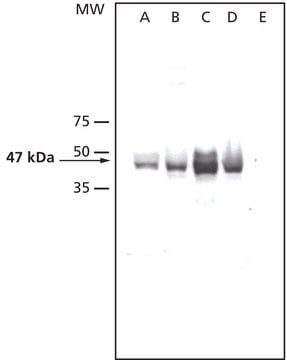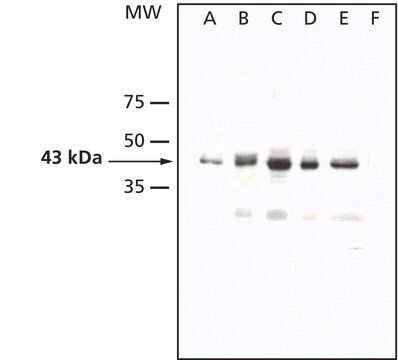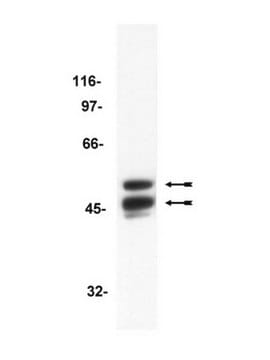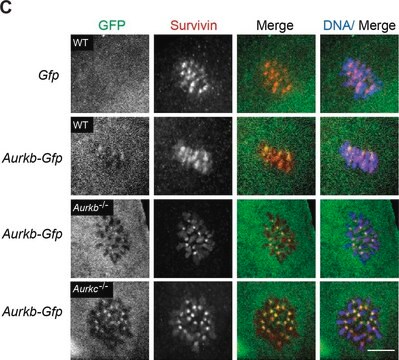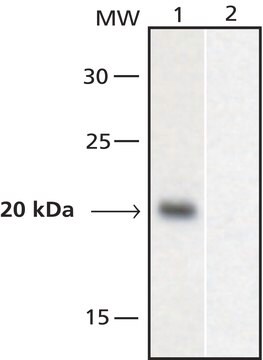M8318
Anti-AtMPK3 antibody produced in rabbit
affinity isolated antibody, buffered aqueous solution
Sinônimo(s):
Anti-Arabidopsis thaliana MAP Kinase 3
About This Item
Produtos recomendados
fonte biológica
rabbit
Nível de qualidade
conjugado
unconjugated
forma do anticorpo
affinity isolated antibody
tipo de produto de anticorpo
primary antibodies
clone
polyclonal
forma
buffered aqueous solution
peso molecular
antigen 43 kDa
reatividade de espécies
Arabidopsis thaliana
técnica(s)
western blot: 1-2 μg/mL using extract (cytosolic fraction) of Arabidopsis thaliana leaves
western blot: 2-4 μg/mL using extract (cytosolic fraction) of Nicotiana tabacum leaves
Condições de expedição
dry ice
temperatura de armazenamento
−20°C
modificação pós-traducional do alvo
unmodified
Informações sobre genes
Arabidopsis thaliana ... ATMPK3(823706)
Categorias relacionadas
Descrição geral
Especificidade
Imunogênio
Aplicação
Ações bioquímicas/fisiológicas
forma física
Armazenamento e estabilidade
Exoneração de responsabilidade
Not finding the right product?
Try our Ferramenta de seleção de produtos.
produto relacionado
Código de classe de armazenamento
10 - Combustible liquids
Classe de risco de água (WGK)
nwg
Ponto de fulgor (°F)
Not applicable
Ponto de fulgor (°C)
Not applicable
Certificados de análise (COA)
Busque Certificados de análise (COA) digitando o Número do Lote do produto. Os números de lote e remessa podem ser encontrados no rótulo de um produto após a palavra “Lot” ou “Batch”.
Já possui este produto?
Encontre a documentação dos produtos que você adquiriu recentemente na biblioteca de documentos.
Nossa equipe de cientistas tem experiência em todas as áreas de pesquisa, incluindo Life Sciences, ciência de materiais, síntese química, cromatografia, química analítica e muitas outras.
Entre em contato com a assistência técnica
